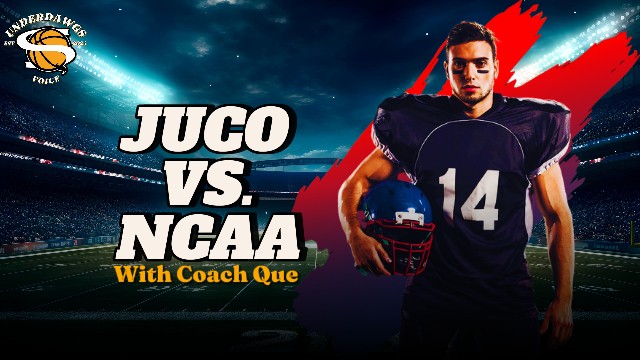The new JUCO rule is stirring conversations across the sports world. This recent court ruling temporarily changes NCAA eligibility rules for JUCO (junior college) athletes transferring to Division I programs. For athletes and coaches, this could be a game-changer. But what does it mean, and how should you prepare? Let’s dive into the details.
What Is the New JUCO Rule?
Under the traditional NCAA eligibility rules, JUCO athletes lose years of eligibility when transferring to Division I schools. For example, two years spent playing at a JUCO leaves them with only two years to compete at a Division I school.
However, a Tennessee court ruling granted Vanderbilt quarterback Diego Pavia a preliminary injunction, allowing him to retain all four years of Division I eligibility despite his JUCO experience. While this ruling currently applies only to Pavia, it sets a precedent that could impact NCAA policies moving forward.
Source: AP News
What Does This Mean for Athletes?
If this rule becomes permanent, it could open significant opportunities for JUCO athletes:
- Extended Playing Time:
Athletes could gain up to six years of collegiate play, including JUCO and Division I experiences. - Greater Recruitment Opportunities:
Division I programs may be more inclined to recruit JUCO players, knowing they’ll retain their full eligibility. - More Development Time:
High school athletes who need extra time to refine their skills can use JUCO as a stepping stone without sacrificing eligibility.
What Does This Mean for Coaches?
The new JUCO rule could also reshape recruitment and team management for coaches:
- Deeper Talent Pools:
Coaches can tap into seasoned JUCO players who have years of experience and eligibility left. - Strategic Adjustments:
Recruitment strategies may shift to prioritize JUCO athletes, balancing high school prospects with experienced transfers. - Roster Competition:
Extended eligibility may intensify competition for roster spots, impacting team dynamics.
Challenges and Questions
While the new JUCO rule offers exciting possibilities, it also raises important considerations:
- Temporary or Permanent?:
The ruling applies only to Pavia’s case for now. Future NCAA decisions will determine if this becomes a widespread policy. - Roster Management:
With extended eligibility, teams may face challenges balancing younger recruits with experienced transfers. - Fairness and Equity:
Does this rule create an uneven playing field for high school athletes aiming for Division I opportunities?
Source: Reuters
Tips for Athletes and Coaches
Athletes:
- Stay informed about NCAA updates.
- Communicate with your coaches about how eligibility changes may affect your path.
- Focus on development to stand out regardless of policy changes.
Coaches:
- Monitor legal and NCAA updates to stay ahead of the curve.
- Adjust recruitment plans to include JUCO athletes strategically.
- Educate athletes and parents about how these changes could influence their options.
Final Thoughts
The new JUCO rule has the potential to transform collegiate sports, creating opportunities and challenges for athletes and coaches alike. Whether you’re a JUCO athlete, a high school prospect, or a coach, staying informed and adaptable is key.
💬 What’s your take on the new JUCO rule? Join the conversation in our Facebook Group or leave a comment below.
For more insights, explore my other blogs on SQ Basketball Chronicles, check out my YouTube channel, and grab official merch from the Underdawg Voice Store.
For all my platforms and resources, visit Linktree

